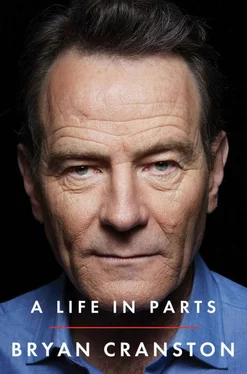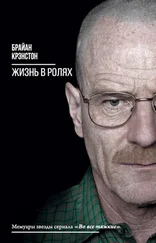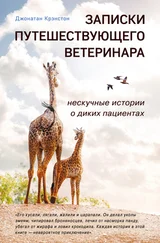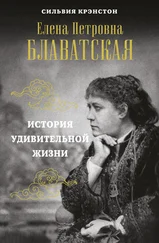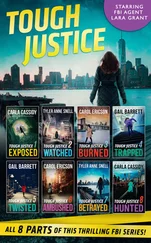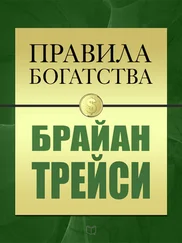And he could tell a story.
The handsome pugilist and raconteur and the blue-eyed flirt fell for each other in a hot flash. It’s easy to do that in an acting class. And after a couple of years, they tied the knot at the Little Brown Church in the Valley on Coldwater Canyon Avenue in Studio City. My mother became a 1950s wife: everything she had she threw behind her new husband and his goal to become a movie star.
They bought a modest tract home and followed the script. My brother, Kim, came first in 1953, then me in 1956, and finally my sister, Amy, in 1962.
We lived in Canoga Park in a single-story home at 8175 McNulty Avenue, close enough to Hollywood in physical distance, but a world away: the Valley—maybe best known for its lazy-tongued, sunbaked drawl. Seasons in the Valley were subtle. In the warm months, when the air pollution level was deemed dangerously high, our outdoor activities were restricted. We had smog days rather than snow days. We’d lie on our backs making smog angels in the yellowed grass.
Mom was an Avon Lady, a volunteer at the Braille Institute for the blind, a Tupperware representative, a team mom for our Little League, and a member of the PTA. She hand-made our Halloween costumes every year.
Dad was our coach in Little League. He loved baseball. So I loved baseball. And I do to this day. I went to a Dodgers game with Dad when I was four or five. The Dodgers had moved from Brooklyn to LA, but they didn’t yet have a stadium, so they played at the Los Angeles Memorial Coliseum for four seasons, from 1958 to 1961. The Coliseum was built for football and track and field, so the dimensions were strange for baseball—an enormous right field and a shallow left field—like Fenway Park in Boston. They put a high screen over the left-field fence in the Coliseum. To get a home run, a batter had to clear the screen. Even though left field was short, that screen was dauntingly high. Forty-two feet. Fenway’s world-famous Green Monster is thirty-seven.
A player named Wally Moon, who hailed from the cotton fields of Arkansas, developed a knack for hitting home runs over that net. He’d switch his swing to an uppercut and whack it so high you thought he might punch a blue hole in the smoggy cloud wall: home run . People took to calling those soaring hits moon shots . I’d watch the ball hang in the sky—a pop-up, really—for a moment of breathless suspense, and then elation. Glory. That captured my imagination: swinging for the impossible, shooting the moon.
Even after the Dodgers moved to their permanent home at Chavez Ravine in 1962, and even after things at my house started to fall apart, I knew I could depend on the smell of fresh-cut grass, Vin Scully’s dulcet voice calling the game on the radio, and the clean symmetry of the baseball diamond. The sense of hope you could dare to have with runners at the corners and no outs.
My dad would take us to the movie and TV sets where he worked as an actor. Once he surprised us with something inside a trailer hitched to our car. He opened it up and we peered into the dark, dung-scented metal box. A donkey! I remember that donkey so well. His name was Tom. My dad let it roam around our backyard for a time. All the boys and girls in the neighborhood came over to admire him and to go for a ride. We had him for a while. Maybe a month or two. And then he went back to wherever he belonged. Bye, Tom. Nice knowin’ ya.
My dad also brought home props for my brother and me: infantry helmets and badges and uniforms. Later I realized he must have “borrowed” them and then returned them the following week. Props on a set are tracked carefully; they’re not toys. But for us they were great treats.
When my dad brought prop guns home, we loved to play war. All the boys in the neighborhood were always battling the Germans or the Japanese or the American Indians. We didn’t really understand history or war or why these people were our enemies. That’s just the way things were.
And then one day an announcer came on TV and said, “We interrupt this program to bring you a special report.” Every time I heard that for years to come, I clenched.
Walter Cronkite was on the screen, somber. “From Dallas, Texas, the flash, apparently official, President Kennedy died at one p.m. Central Standard Time.” I remember how Cronkite took off his glasses. He wasn’t a stoical journalist anymore. The mask came off. He was just a man, overcome by the size and shock of the loss.
There was a gasp and then a panic. My mother was weeping and clutching herself. And then she was locked in on the phone, as if my brother and I had disappeared. The adults couldn’t get enough news. My dad came home, solemn, and the neighbors stopped by. They needed to tell each other it was going to be okay. I don’t know how much I understood, but I felt the gravity of it. And now we had a new president. Lyndon Johnson. He talked funny. I don’t know that I’d ever heard that deep of a Texas drawl. And I thought his wife had a strange name.
Our parents were devastated. We were learning life and death and fear and grief and succession. We didn’t know what to do. A neighbor kid declared: “We are not playing with guns anymore.” We loved guns, but we tossed them aside, imagining that we could somehow alter the course of things with our gesture. It didn’t last long. The urgency diminished and normal life resumed. It was a new normal.
Whereas I was a goof as a kid, my brother Kim had a serious streak; he was introspective. He was smarter than me, not as athletic. But we were aligned in almost every other way. Brothers in every sense. And we both inherited the acting gene. Kim became my first director. He wrote and mounted the McNulty Avenue Garage production of The Legend of Frank and Jesse James, then cast me as Frank James. For Jesse, he looked next door to the Baral household. The Barals had five boys, and my brother chose Howard, the middle child, to play the heartless outlaw. Kim cast himself as the sheriff, several victims, townspeople, the coroner, and a newspaperman. I’m not sure why he didn’t cast others—there were plenty of kids in the neighborhood. Maybe he wanted them to pay their nickel like everyone else.
We draped white sheets over storage boxes, and they became snowcapped mountains. We fashioned a blue plastic tarp into a raging river. A stuffed alligator snapped at our heels. Alligators abounded in the Old West. Of course the denouement was a fateful shoot-out. We were boys, pretending to kill each other, playing with glee and abandon.
My first venture as a professional actor was a family production, too. My dad wrote, directed, and produced a series of ads for the United Crusade, which would later change its name to the United Way. I guess invoking a blood-soaked religious war wasn’t the vibe they were going for as a charity. My dad cast me as the lead. I was seven. The story went I was playing baseball with friends on a sandlot when a foul ball rolled into the street and I gave chase. Look out! I got hit by a car, put into an ambulance, rushed to the ER, and put into a head-to-toe body cast. Weeks later the cast came off, and I started physical therapy on the parallel bars and in the pool to learn how to walk again. In the last scene I held hands with a woman pretending to be my mother as we joyfully walked out of the hospital. Healed.
I remember shooting every one of those scenes. I remember feeling that there was something special about what I was doing. Maybe it was just the attention. But I think it was something more. A sense that I was part of something greater than myself.
I especially loved acting for my dad. He was a big man in my eyes—barrel-chested with striking black hair that gave way to distinguished salt and pepper before he turned forty. He always seemed so tall to me, but as he aged, I realized that he was just shy of five feet nine at his high-water mark.
Читать дальше
